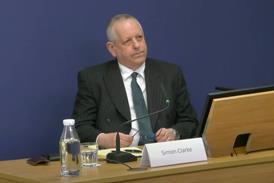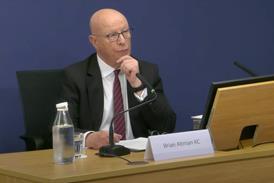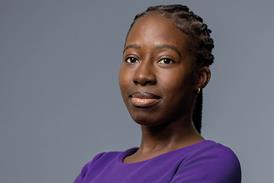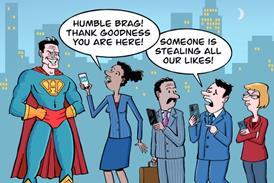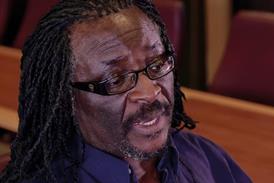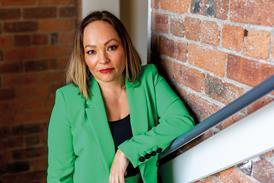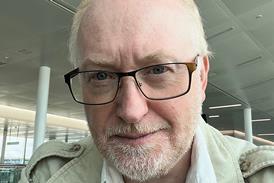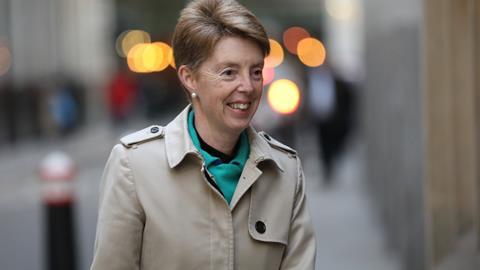Two former general counsel and a head of legal appeared at the Post Office Horizon Inquiry last week. What was revealed shocked even the cynical – and there is a lot more to come yet
Individual lawyers were always going to be scrutinised for their role in the Post Office Horizon scandal. But the past week of evidence – featuring two former general counsel and a current head of legal – has put the very essence of a being a lawyer under a spotlight.
In-house lawyers will have shuddered at the attitude of chief executive Paula Vennells (pictured above), who wrote disparagingly that her own general counsel Susan Crichton ‘was possibly more loyal to her professional conduct requirements and put her integrity as a lawyer above the interests of the business’.
Crichton had been waiting outside a board meeting in July 2013 ready to give an update on the Second Sight forensic accounting report which threatened to blow apart the basis for many sub-postmaster prosecutions. She waited for an hour but was never called to present the paper.
According to notes from Vennells, the pair then met two months later at a coffee shop, where Crichton became angry and shouted at her chief executive. Vennells said Crichton was ‘very emotional’ and her ‘ego and self-esteem have been undermined’. Crichton told the inquiry she had no recollection of any such meeting, although she resigned within weeks of it happening.
The former GC, who had warned her bosses she would not be a ‘scapegoat’, told the inquiry that at all times she had focused on delivering an independent report through Second Sight. ‘If that meant I put my integrity as a lawyer above the interests of the business then that is what I did,’ she added.
While Vennells’ assessment of Crichton portrayed the lawyer in a positive light, there were several uncomfortable revelations for her to face as well.
An email chain including Crichton, company secretary Alwen Lyons and chief executive Vennells was shown to the inquiry. Lyons said there was a particular issue with the investigation looking again at the prosecution of pregnant sub-postmistress Seema Misra in 2010. Crichton had expressed the view that contacting Misra to say the case was being reviewed would be a ‘red rag to a bull’.
'If that meant I put my integrity as a lawyer above the interests of the business then that is what I did'
Susan Crichton, former Post Office general counsel
Crichton told the inquiry she had been ‘too short-sighted’ and regretted taking this view. She also agreed there had been a ‘lack of urgency’ about pausing prosecutions. ‘With hindsight I am sorry this took such a long time to be resolved on my watch,’ she added.
In another hearing, Post Office management stalwart Angela van den Bogerd, who was with the organisation for 35 years before resigning in 2020, conceded that legal professional privilege may have been used as a ‘cloak’ to stop documents from being disclosed to sub-postmasters who were considering litigation in 2011.
Emily Springford, a principal lawyer in dispute resolution with the group, had emailed Bogerd saying that a document would be deemed privileged only if its ‘dominant purpose’ was to give or receive legal advice. If the dominant purpose was not to obtain legal advice, Springford continued, staff should ‘try to structure the document in such a way that its dominant purpose can be said to be evidence gathering for use in the litigation’.
Bogerd cascaded this information down to colleagues, telling them to preserve all documents and ‘mark communications in relation to these cases as legally privileged and confidential’.
The inquiry also heard that Springford, who left the organisation in 2012, had advised staff to think ‘very carefully before committing to writing anything relating to [these] issues which is critical of our own processes, including emails, reports or briefing notes’.
Tim Moloney KC, representing sub-postmasters, said the effect of this was essentially that if anyone wanted to be critical of the Horizon IT system then they should be careful before putting it in writing, adding: ‘Ironically, this is in writing, in black and white.’ He added that the instruction was ‘far from lawful, open and transparent’.
The inquiry also heard that Chris Aujard, general counsel from 2013 to 2015, used his first board paper presentation to tell members there were ‘no systemic or fundamental flaws in the review process’. That line would later prove to be incorrect, and the inquiry heard that Aujard quickly decided to halt criminal prosecutions, which he said ‘caused great distress and anxiety and didn’t have a place in a business such as the Post Office’.
Aujard will return at a later date to face questions. Four more lawyers, both in-house and external, will appear before the inquiry next week. The experience is unlikely to be comfortable.


